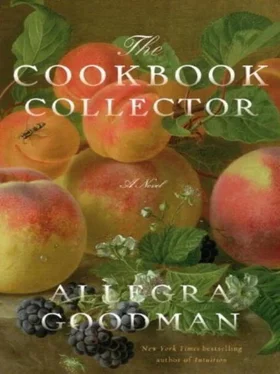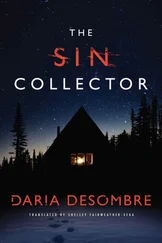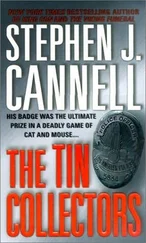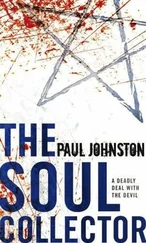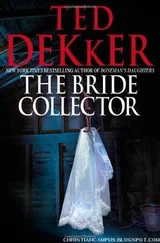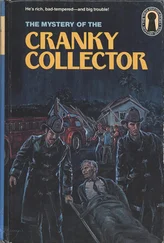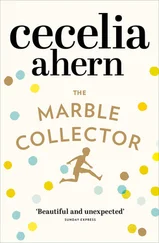“That’s just it.”
“Sorel!” He turned on her in exasperation.
“Sorry.”
“You would make a good spy,” he said.
“Why?”
“You don’t trust anybody. You wear black overcoats. You admit you like disguises.”
“I don’t disguise myself from you.”
“No?” He turned toward her, and captured her hand in his. “Then why is your phone number unlisted?”
“Why did you try to find my phone number?” she asked, puzzled. “I only use my cell.”
“And why do you disappear all the time?”
“What do you mean, ‘disappear’?”
“You don’t show up, and I have no idea where you are.”
“I don’t have to tell you where I am. I’m touring!”
“Where are you touring? Davis Square?”
“I have a career.”
“You mean The Chloroforms? That’s your career?”
“You don’t think programming is my career, do you? I came here to be a performance artist and study physics. You don’t think I’m going to start rallying round ISIS and all that.”
“I’m sure you were perfectly happy with ISIS when you sold your stock,” Orion said, thinking of Sorel’s little house.
“Look, I’m the consistent one,” said Sorel. “I’ve always said ISIS is my day job. You’re the one obsessed with Jonathan. He loves me. He loves me not. He loves me. You’re always looking for affection, even when the relationship is frayed. Even when it’s broken.”
“Let’s leave Molly out of this,” said Orion.
“You always do.” Sorel pushed her chair back from the table. “ISIS is a case in point. So is Jonathan. You’re loyal to everybody. It’s a shame, really, that I’m …”
“That you’re what?” Orion asked.
“So fond of you.”
Oneness . Jess read the word on the screen displaying Rabbi Helfgott’s PowerPoint presentation. He was speaking that evening at the Tree House, at Jess’s invitation.
What is Oneness?
Every particle in the universe desires to be One.
• raindrop
• spark
• soul
“It is amazing to think,” Rabbi Helfgott told the group of close to thirty Tree Savers, “that all through the world, every neshamah , every spirit, whether we know it or not, desires the Oneness that is God. This applies to every living being—animal, plant, insect—trees included. Oneness is our natural state. Our default condition. Unfortunately, too often in our lives, we fall away. The question is: How do we return?”
No one spoke. Some Tree Savers listened closely from where they sat on chairs and couches; others fidgeted, bemused, on the floor, and the rabbi watched them and gazed upon the Jewish faces among them—Jessamine Bach, Noah Levine—as he moved on to the next slide.
• Tefillah —Prayer
• Tshuvah —Repentance
• Tzedakah —Charity
“In our tradition, this is the magic formula,” the rabbi said. “This is the answer.”
Jess considered the rabbi’s three-part solution for reengagement with the eternal. “Does this cover everything a soul can possibly do?”
“Yes!” declared Rabbi Helfgott. “For sure. Yes!”
“What about civil disobedience?” Leon asked.
Now everyone was listening. “That would depend on various factors,” the rabbi said diplomatically. “Peaceful or violent? Legal or illegal? Safe or dangerous?”
The Tree Savers hemmed and hummed, debating among themselves, and Daisy said, “I think if you see people interfering with the Oneness of the world, you have to stop them.”
“But that’s the question,” said Jess. “Is stopping them actually some kind of charity? Or prayer? Or does civil disobedience come under the category of repentance? And is it only quiet, peaceful protests that count? Or social justice by any means necessary?”
“Who’s more Jewish?” Noah asked. “Mahatma Gandhi? Or Malcolm X?”
In his younger days, Rabbi Helfgott might have felt the discussion slipping away, but he had lived and worked in Berkeley for seventeen years. Magisterially, he raised both hands. “Let me put this on the table. Mahatma Gandhi or Malcolm X? These are very interesting people, but when it comes to more or less Jewish—the answer is simple. Neither was a Jew! However, let’s look in depth at our first point: Tefillah . Prayer.”
“Wait,” Jess interrupted once again. “I want to understand whether social action can be a kind of prayer.”
Rabbi Helfgott smiled. “No.”
“No!” She could not conceal her surprise.
“Social action is original,” said Rabbi Helfgott. “But praying is prescribed. In social action we improvise, depending on the situation. However, in the Jewish tradition when we pray, we read words already set down for us. Social action is ad hoc. Prayer is total catastrophic insurance, covering every possibility.”
“So you’re saying it’s better to be spiritually derivative than creative?” Jess asked.
“Absolutely!”
The room was silent. Ha! Helfgott thought. Who was radical now? The Tree Savers? Or their bearded guest speaker in his frock coat? Who was pious now? Students feeling their way on a unique spiritual journey? Or their rabbi who dared suggest that the soul’s journey was not unique at all, but scripted?
“This is the gift of our tradition,” the rabbi said. “You wish for Oneness—you don’t have to reinvent the wheel. The wheel is already there for you. Spinning! You wish to speak to God? You know what to say for every occasion.” He lifted up a blue prayer book and watched the Tree Savers’ faces: some skeptical, some puzzled. All surprised.
“Therefore social action is not prayer. However, when it comes to charity, this is another story. And the word tzedakah , ‘charity,’ has another meaning. ‘Justice’!”
Rabbi Helfgott took a sip from his water bottle, for he did not drink or eat anything in nonkosher houses, not even Tree Houses.
“We look at the problems of the world. The poor, the homeless, the oppressed. We look at the endangered species of the world. We say, ‘What can I give? What can I do for those who have so little? For those who are silent?’ Prayer is one method. Giving of time and money is another. Are prayer and social action the same? No. Are they connected? Absolutely. I will lift up mine eyes unto the hills . Look to the sea. Look to the Earth. Look to the trees. If they aren’t God’s messengers, they are definitely His witnesses. Look to the world and unite with what is natural around us. I myself have discovered in California more evidence of the Shechinah, the Holy Presence, than I ever saw in my childhood. I myself grew up in an urban environment! One scraggly plant, one asphalt playground. What did I know from the natural world? Until I, who lived in Crown Heights, began driving my van through the golden hills along 280—what did I know? Until I, who grew up in books, took my family to Point Reyes National Seashore, to see the wildflowers blooming and the waves crash over the rocks—what did I understand? My wife and I saw the immensity of the ocean! Our children saw Tomales Bay. Then I, who never noticed the landscape, came to repent my ignorance. Then I dedicated my heart to the cliffs, the wind, the trees. To the refreshment of our planet speedily in our day.”
Silence.
Nervously, Jess scanned the faces around her. Some looked at Helfgott with respect. Others with curiosity. No one spoke. Then suddenly, Arminda said, “Yeah!”
Leon applauded, and the others joined in.
“He was great,” Leon told Jess that night as they cleaned the kitchen.
Jess twirled her mop happily. “I knew he would be!”
Читать дальше
